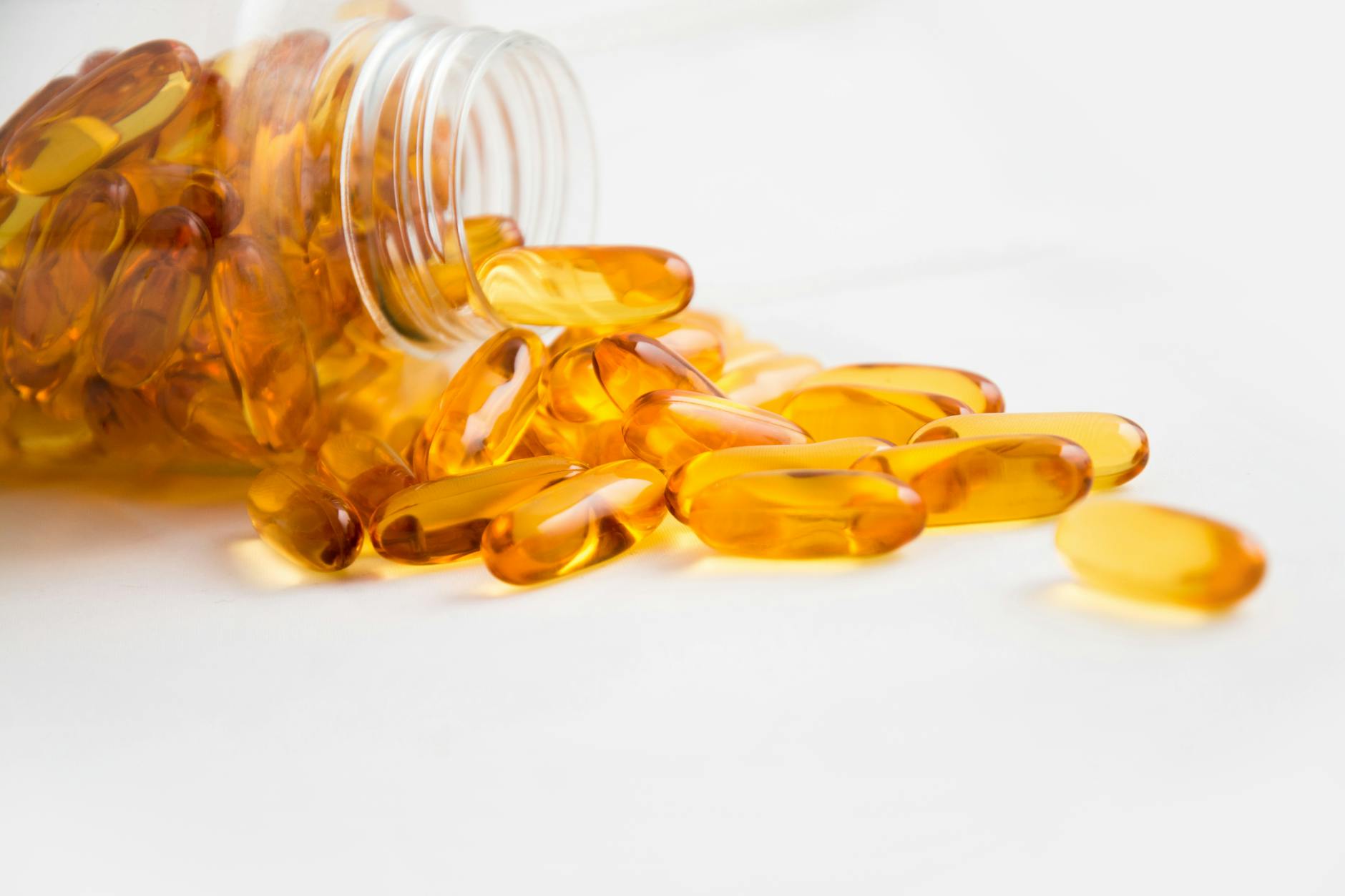Top 5 Puppy Supplements for Growth and Immunity
As a dedicated dog owner, nothing matters more to me than helping my puppy Savannah grow up healthy and strong. Supporting healthy growth and immunity in puppies isn’t just about love, it’s about making good choices every day.
I know how confusing it can get when faced with so many dog food options and advice about what’s best for our pets.
In this post, I’ll highlight the Top 5 Puppy Supplements for Growth and Immunity that I trust and recommend. If you’re a dog owner looking for clear, honest guidance on nutrition, you’re in the right place.
I’ll also share why choosing the right supplements, paying attention to dog food, and keeping up with dog obedience training can set your puppy up for a bright future. Healthy habits matter, no matter the dog breeds you care for.
If you’re ready to dig into real advice for raising happy, thriving pups, you’re not alone—I’ve walked this path with Savannah, and I’m happy to help.
For more about different dog breeds’ unique needs, check out these Akita Dog Interesting Facts.
Table of Contents
Key Takeaways
After helping my puppy Savannah thrive, I know how vital the right supplements are during a dog’s growing months. The Top 5 Puppy Supplements for Growth and Immunity help fill nutritional gaps, boost young immune systems, and create a solid health foundation. Here’s what you should remember from the research, my experience, and reviews from other dog owners.
Quality Supplements Fill Key Gaps
Puppies need more than basic dog food, especially if they’re energetic or come from breeds that grow fast. Even the best formulas may lack enough omega-3s, probiotics, or other essentials for strong bones and a robust immune system.
Quality supplements bridge these gaps, supporting everything from brain function to bone density.
- Omega-3 fatty acids for cognitive and vision development.
- Probiotics to keep digestion smooth and immune defenses strong.
- Vitamins and minerals to make up for what busy puppies might miss in regular dog food.
- For more about supplement benefits during those puppy months, visit Supplements for Puppies and Kittens.
 Photo by Pixabay
Photo by Pixabay
Growth and Immunity are Linked
Dog breeds grow at different rates, but all puppies benefit from a balanced mix of nutrients. Strong immunity fights off infections while proper nutrition supports muscle, bone, and brain growth. When Savannah was teething and going to puppy class, her supplements filled in where her kibble left off.
- Combining the right nutrients helps your dog handle stressors like new environments or training challenges.
- Supplements can be especially important when your vet points out breed-specific needs or dietary gaps.
Research and Reviews Matter
Dog food reviews and expert recommendations matter just as much as ingredient lists. I always check trusted sites like Dog Food Advisor: Dog Food Reviews and Ratings to confirm the brand I’m considering is safe and well-reviewed. Trusted reviews help you avoid fillers, risky ingredients, and hype.
Savannah’s progress with obedience depended on more than treats; good nutrition made a clear difference in her stamina and focus during dog obedience training.
Supplements are Not a Shortcut
No supplement will fix a weak diet or bad habits. You still need to pick nutritious dog food, read labels, and commit to a routine of online dog training and real-life play. Supplements amplify your effort but don’t replace the basics. Use them like an extra safety net, not as a standalone solution.
Every Puppy is Unique
Every dog is one of a kind, from tiny terriers to big, bouncy retrievers. Breed, age, and even temperament should guide your supplement choices. Some breeds have higher needs for certain minerals or have sensitive tummies, so always check what’s best for your dog’s background.
To get a sense of what other dog breeds might need, check guides on breed-specific nutrition or ask your vet before starting something new.
Staying informed and open-minded is just as important as the product you choose. Proper nutrition, patient dog trainig, and steady routines are the real MVPs in a puppy’s journey to healthy adulthood.
Why Supplements Matter for Puppy Growth and Immunity
Puppies like Savannah grow fast, and every stage brings new nutritional needs. Even when I give her high-quality dog food, I know regular diets sometimes miss the mark.
Supplements act as fuel for those crucial early months, helping bridge gaps so puppies have the best shot at healthy development.
Imagine your puppy as a little athlete—proper support powers their bones, brain, and immune system. Healthy habits, including the right supplements, make a real difference.
 Photo by qiana zhang
Photo by qiana zhang
The Foundation: Why Puppies Need More Than Dog Food
Dog food covers the basics, but growing puppies aren’t average eaters. Active breeds burn through nutrients faster, and small or large breeds both face their own challenges.
The right blend of supplements fills gaps left by diet and supports:
- Growth of strong bones and muscles
- Healthy digestion for better food absorption
- Brain and eye development
When Savannah started dog obedience training, I noticed she stayed focused longer and bounced back from new challenges faster when she got the right nutritional support. Supplements became part of our daily routine, especially during those big growth spurts.
Essential Role in Immunity
A strong immune system sets puppies up for a healthy life. Without enough vitamins, minerals, and healthy fats, their bodies can’t fight off common germs or recover quickly from stress.
Countless studies show that puppies are more likely to thrive if their immune systems have backup, especially in fast-growing breeds or those with sensitive stomachs.
Certain supplements (like omega-3s and probiotics) give the immune system sturdy roots during this critical time. They protect growing bodies when puppies meet new environments or start socializing.
For more on how nutrients and supplements help build immunity, check this overview on vitamins, minerals and immune health.
Puppies Need a Safety Net
Even the best reviewed dog food doesn’t guarantee every vitamin and mineral gets absorbed or used efficiently. Growth and immune health don’t happen by accident. They’re like building a house—a strong frame and materials keep the whole structure standing tall. Supplements offer that extra layer of protection, so even during life’s surprises, your puppy has the strength to keep going.
For a list of ways the Top 5 Puppy Supplements for Growth and Immunity really boost young dogs, check out other recommended puppy supplements for overall health.
Keeping Savannah healthy has taught me one thing above all: those early investments pay off every single day.
If you want to give your puppy the best start, focusing on immune and growth support now—through diet, training and the Top 5 Puppy Supplements for Growth and Immunity—will make those rambunctious puppy months smoother for both of you.
Top 5 Puppy Supplements for Growth and Immunity
Growing up with my puppy Savannah, I learned that her nutrition shaped every wag, bounce, and bright-eyed glance. The right supplements do more than fill gaps—they give puppies a healthy head start.
From dog food reviews to online dog training advice, I always found one constant: these Top 5 Puppy Supplements for Growth and Immunity truly matter. Here’s how each one supports your puppy in staying strong and energetic during those busy first months.
1. Probiotics for Digestive and Immune Health
Probiotics may be tiny, but they play a big role in your puppy’s life. These live, “good” bacteria work to balance gut health, helping puppies like Savannah digest their food more easily.
A happy gut naturally boosts immunity, lowering the risk of sickness as puppies meet the big world of dog breeds around them.
Look for probiotic supplements made for dogs, with:
- Several live strains (like Lactobacillus and Bifidobacterium).
- Clear expiration dates and storage instructions.
- No extra fillers or artificial colors.
Choose products that are tested for safety and effectiveness, and check with your vet if your puppy has a sensitive stomach or allergies. For more helpful info on probiotics, see this guide on probiotics for dogs.
Stomach troubles can ruin even the best dog obedience training sessions, so I make sure Savannah’s digestion stays on track.
2. Omega-3 Fatty Acids for Brain and Joint Development
Omega-3 fatty acids stand out when talking about puppy growth. They sharpen brain and eye development and keep joints limber, so your pup can bounce through puppy training and playtime.
Savannah’s memory and focus noticeably improved once I added fish oil rich in EPA and DHA to her meals.
- Main sources: Wild-caught fish oil is safest, with clear dosing instructions and third-party testing.
- Avoid fish oil with artificial flavors or unnecessary ingredients.
Omega-3s also help reduce swelling and protect growing joints, which is extra important for active or large dog breeds.
At every stage of dog obedience training, healthy joints mean less risk of injury. For extra details, check out fish oil for dogs, which explains how these fats can change your dog’s health for the better.
3. Multivitamins for Comprehensive Support
Even top-rated dog food sometimes misses a few building blocks for full growth, so multivitamins provide backup.
A good puppy multivitamin fills nutritional gaps, supports metabolism, and boosts general wellbeing.
My routine with Savannah always included a daily dose, especially during times of fast growth or stress.
- Supports metabolism, skin, and coat health.
- Adds missing micro-nutrients often left out of standard diets.
Even if you serve premium dog food, a multivitamin ensures nothing falls through the cracks. Always follow the dosage for your puppy’s weight and double-check labels for whole-food sources.
For a look at what reputable multivitamin brands offer, see this overview of vitamins for puppies. Multivitamins made a real difference for Savannah, especially when she was extra active during puppy teething and play.
4. Colostrum Supplements for Immune Boost
Colostrum is nature’s first superfood, packed with antibodies and immune factors. It’s especially helpful for puppies weaned early or those who seem weaker than their littermates.
When Savannah was little, her breeder recommended colostrum powder to give her immune system an extra lift during vaccinations and new experiences.
- Colostrum supports normal growth while helping puppies fight off everyday germs.
- Look for bovine (cow) colostrum, which is safe when sourced from trusted brands.
If your puppy had a tough start, speak with your vet about colostrum supplements. It could help pave the way for better resilience and faster recovery from stress. Interested in how colostrum works? Here’s a detailed look at colostrum powder for pets.
5. Calcium and Phosphorus for Bone Growth
Strong bones are the base for years of play and training. Puppies need enough calcium and phosphorus to support proper skeletal growth, especially for fast-growing or large dog breeds.
But more isn’t always better. Too much or an unbalanced ratio can lead to bone problems later.
- Typical safe ratio: About 1.2:1 calcium to phosphorus.
- Avoid “DIY” supplementing unless advised by a vet.
- Balanced calcium and phosphorus are best delivered through complete supplements or special puppy food.
Careful planning protects your puppy from future issues like joint pain or bone weakness. For deeper reading, this article on getting the calcium and phosphorus balance right explains why these minerals matter so much for developing dogs. Savannah’s steady growth and strong frame speak for the results.
 Photo by Julissa Helmuth
Photo by Julissa Helmuth
Small steps—like picking the right supplements—build a strong start for any dog. I watched Savannah’s energy, focus, and resilience soar when her routine included these Top 5 Puppy Supplements for Growth and Immunity.
The extra support turned daily dog trainig and play into more than fun—it became the beginning of a healthy, happy life.
For more practical guidance on nutrition that fits your dog’s breed and stage, check out the Goldendoodle dog food guide. It’s one more way to get ahead on your puppy’s health journey.
How to Choose the Right Puppy Supplement
Sorting through puppy supplements can feel confusing, especially with so many promises on every label. My journey with Savannah taught me that not every product is worth trusting.
It takes more than fancy branding or dog food reviews to make a good choice. Picking the right supplement means looking at your puppy’s real needs and checking every ingredient with care.
 Photo by Nataliya Vaitkevich
Photo by Nataliya Vaitkevich
Know Your Puppy’s Unique Needs
Every puppy is different, just like Savannah. Breed, age, size, and activity level all play a role. Some fast-growing dog breeds need extra joint support, while others benefit from soothing digestive aids. Before picking any supplement, consider:
- Your puppy’s breed and expected size
- Current health or allergy concerns
- Whether you’re already using a special dog food
- Stage of growth (early months or older puppy)
Some puppies thrive on a nutrient-rich dog food, while others (especially the energetic or sensitive ones) might need more targeted boosts. When in doubt, talk to your veterinarian.
They can spot gaps you might not notice and suggest current best practices in puppy nutrition.
For more details on how to assess your individual pet’s requirements, see this guide on how to choose the right supplements for my pet.
Check the Supplement Ingredients
Not all supplements are created equal. Scan the label for clear, science-backed ingredients rather than empty fillers. The best choices list:
- Active ingredients with their amounts
- Clear sourcing (such as wild fish oil or bovine colostrum)
- No artificial dyes or hidden sugars
- Doses suited to puppies, not just adult dogs
Pro-tip: Avoid products that use blanket terms like “meat by-product” or “animal digest.” Trustworthy supplements show what’s inside, making it safer to protect your puppy’s health. If you’re not sure what an ingredient does, a quick search or a chat with your vet goes a long way.
Read Reviews and Seek Transparent Brands
I always read recent dog food reviews and supplement feedback before buying. What matters isn’t just high ratings, but how the product works for other puppies of similar breed or age.
Trusted brands should show third-party testing, share sourcing details, and welcome questions about their formulas.
Good brands also update their ingredients to follow the latest research, helping puppies get exactly what they need as they grow. For a deeper dive into what to look for in quality supplements, visit this overview on supplements for puppies and kittens.
Match the Supplement to Your Puppy’s Routine
Supplements should fit your daily habits without hassle. Some come in soft chews (perfect as a reward during dog obedience training), while others mix with dog food for simple feeding. Pick a format that works with your schedule so you never skip a dose.
- Chews are great for stubborn puppies or picky eaters.
- Powders mix in well with wet food.
- Liquid options can be ideal for those with sensitive teeth or gums.
Some supplements offer multiple benefits in one dose, combining immune support with joint help or digestive aids. If you use several supplements, check the ingredients so there’s no doubling up.
Don’t Skip the Expert Opinion
The best advice on supplements always comes from your veterinarian. They know your puppy’s health history, can recommend tailored products, and help avoid risky combinations.
For more on balancing supplements and daily routines (like dog trainig or even new online dog training courses), reading site resources like the basic dog obedience training guide can help you stay on track with overall health.
Taking the time to pick the best supplements for your puppy pays off.
With the right support, your dog can get the maximum benefit from the Top 5 Puppy Supplements for Growth and Immunity and start every day with more energy, better focus, and resilience as they grow.
Integrating Supplements With Dog Food and Training
Supporting puppy growth is about more than what goes in the bowl. Based on my experience raising Savannah, I’ve seen firsthand how supplements, when woven into both feeding and training routines, encourage balanced growth and sharper minds.
Getting the mix right sets up your puppy to thrive—inside and out.
 Photo by Kampus Production
Photo by Kampus Production
Timing and Blending: Making Supplements Part of Mealtime
I always add supplements alongside Savannah’s regular dog food, never as a separate treat or afterthought. Puppies love routine and do best when changes are small and steady. Giving supplements at meals means they’re digested with food, which helps with absorption and avoids tummy upsets.
Here’s how I mix supplements with meals:
- Sprinkle probiotic powders or fish oil directly on kibble or wet food.
- Mix multivitamins into a spoonful of canned food for a tasty “topper.”
- Use chewable supplements as the first “reward” after eating, combining nourishment and positive feedback.
For more advice on feeding habits and nutrient balance, the puppy nutrition guide is a solid starting point. It helped me avoid overdoing it or getting the mix wrong on busy mornings.
Using Supplements as a Training Partner
Supplements aren’t just about growth—they can play an active role in daily dog obedience training. I’ve worked supplements into Savannah’s reward system, especially during her dog trainig.
When she nails a new command or shows calm focus in a distracting environment, I reach for a tasty, healthy supplement chew. This adds double value by:
- Reinforcing good habits with something healthy
- Linking positive behaviors to meals or supplements, not just treats
- Keeping her nutrition up, even on days when training lasts longer than usual
Building a Routine That Sticks
Puppies learn fast when life is predictable. Adding the Top 5 Puppy Supplements for Growth and Immunity right into your feeding and training routine turns them into a normal part of your dog’s day.
Sticking to a regular schedule helped Savannah know what to expect, making her more relaxed and focused for both meals and training.
Key takeaways for building this routine:
- Always use the same cues before giving supplements, so your puppy connects the supplement to positive meals and rewarding moments.
- Keep supplements visible in your feeding station or training bag so you never forget a dose.
- Watch for reactions—if your puppy seems off after a new supplement, pause and check with your vet.
Combining the right dog food with quality supplements multiplies the benefits. When good nutrition goes hand in hand with smart dog obedience training, you set your puppy up for a lifetime of learning and health.
I saw Savannah’s growth and sharpness improve every month—proof that these habits work for any breed and any style of family life.
Common Mistakes To Avoid When Supplementing Puppies
Supplements can be a game changer for puppy growth, but it’s surprisingly easy to make mistakes along the way.
Having guided Savannah through her early months with the Top 5 Puppy Supplements for Growth and Immunity, I’ve learned that even well-meaning dog owners can lose sight of best practices.
Let’s cover the blunders to watch out for so your puppy gets the right start.
Over-Supplementing or Doubling Up
Some pet owners believe if one dose is good, more must be better. This isn’t true with supplements! Giving too many vitamins or minerals can have the opposite effect, putting stress on your puppy’s organs and throwing off their natural balance.
Always stick to the recommended serving size and avoid layering products with similar nutrients. This helps protect growing bodies and keeps the benefits of the Top 5 Puppy Supplements for Growth and Immunity on track.
Skipping Veterinary Guidance
It’s tempting to take advice from well-rated dog food reviews, social media, or even dog park chats. But what worked for one puppy might not fit another. Puppies differ by breed, size, and even temperament.
What Savannah needed as a playful Labrador mix won’t match a tiny terrier. Veterinarians know how to spot gaps in nutrition, potential allergies, or health problems that might not be obvious at home.
Never start a new supplement regimen without first talking to your vet—this safeguard is just as important as picking the right dog food.
Ignoring Interactions With Dog Food
Dog food and supplements should work together, not compete. Some vitamins and minerals in dog food can interact with those in supplements, leading to too much of a good thing.
For example, extra calcium on top of a complete puppy formula can cause bone & joint issues, especially in big dog breeds. Read ingredient lists on both products and talk to your veterinarian or trainer to avoid accidents.
If you love learning about healthy feeding, take time to review the Comprehensive Guide to Boston Terriers, which covers more about how nutrition and supplements interact.
Choosing Low-Quality or Generic Supplements
Not all products are made the same. Some “puppy supplements” are just flavored treats with fillers, dyes, and very little nutritional value.
Cheap options sometimes have hidden sugars or vague ingredient lists that might trigger allergies. I always check for clear sourcing, trustworthy brands, and positive feedback from other dog owners.
When you see reviews that look too good to be true, dig a little deeper. Reliable results, like the progress I saw in Savannah’s focus and stamina during dog trainig, start with real science and honest ingredients.
Changing Routines Too Often
Consistent routines matter. Skipping doses, frequently changing products, or not mixing supplements in with daily meals can confuse your puppy’s system.
Puppies like Savannah thrive when life is predictable—they eat better, absorb nutrients, and stay focused during dog obedience training when you keep routines steady.
- Set reminders if you need help remembering doses.
- Mix supplements into meals or use them as part of a positive reward system.
- Keep your supplement stash in the same spot so you never forget them on busy days.
Expecting Supplements to Replace Dog Food or Training
Supplements help, but they’re not a shortcut. Skipping walks, giving low-quality food, or neglecting regular online dog training won’t be fixed by even the best supplement.
Focus on a good foundation of nutrition, exercise, and training, then use supplements to sharpen those results.
Savannah’s happiest days always came from a balance: good meals, daily dog obedience training, and the Top 5 Puppy Supplements for Growth and Immunity working quietly in the background.
By learning from these mistakes, you’ll keep your puppy’s health and growth on the right track. Staying alert and involved every day will make a real difference during these quick-growing months.
Frequently Asked Questions: Top 5 Puppy Supplements for Growth and Immunity
Every dog owner wants what’s best for their puppy. If you’re like me and Savannah, you’ve probably had a list of questions as you sift through dog food, dog obedience training tips, and those long aisles of supplements.
Here, I answer some of the most common concerns readers have about the Top 5 Puppy Supplements for Growth and Immunity.
This section will clear up doubts and give you the confidence to make smart choices for your furry friend.
Which Puppies Need Supplements?
Not all puppies will need supplements, but many can benefit—especially those on basic or generic diets, puppies growing quickly, or those with breed-specific needs.
For example, Savannah needed an extra immune boost in her first few months because she wasn’t eating well and was starting dog trainig. Supplements helped fill those nutritional gaps.
- Rapidly growing breeds often require more support for bones and joints.
- Puppies prone to tummy troubles get help from probiotics.
If you’re unsure, always speak with your vet to discuss your puppy’s breed, age, and diet. A more tailored plan is always safer and more effective.
Is It Safe to Give My Puppy Multiple Supplements?
It’s usually safe to use more than one supplement, but you need to check for overlapping ingredients. Too much of a single vitamin or mineral can actually hurt developing puppies. I learned with Savannah that the safest bet was to check every label and never double up on the same key nutrients. Keep in mind:
- Avoid giving extra calcium if your puppy’s food is already “complete and balanced.”
- Look for supplements designed for puppies, not just general “dog” formulas.
For detailed advice on safety, check out this honest guide from WebMD: Dog Vitamins and Supplements.
Can Puppies Get All Their Nutrients From Dog Food Alone?
In many cases, quality dog food does most of the heavy lifting, but some puppies have unique requirements. Lifestyle, stress, growth rate, and the brand of food you buy can all affect what’s missing from your puppy’s bowl.
A supplement can act as insurance, just as it did for Savannah during her training and playtime when she needed a little extra.
- Busy puppies, or those in online dog training courses, use up nutrients faster.
- If your vet mentions coat, immunity, or digestion concerns, consider filling the gap with a targeted supplement.
Explore the basics of puppy nutrition and supplement use in this expert guide to puppy supplements.
How Can I Tell if a Supplement is Making a Difference?
I started seeing changes in Savannah within a few weeks of adding a quality probiotic and multivitamin. Signs your puppy benefits from their supplements may include:
- More energy and alertness.
- Healthier digestion and less stress during new experiences.
- Shiny coat and bright eyes.
If you’re noticing no improvement or even side effects such as upset stomach, stop the supplement and consult your veterinarian. It’s important to be consistent and patient—changes won’t happen overnight.
Are Human Supplements Safe for Puppies?
Human supplements are not safe for dogs unless prescribed by a veterinarian. Certain ingredients found in people’s vitamins are toxic to dogs, like garlic or xylitol.
Always choose formulas made for puppies and stick with trusted brands backed by good dog food reviews and positive experiences from other pet owners.
For more facts on how dog supplements work and what to look out for, review PetMD’s resource on dog supplements.
When Should I Start and Stop Supplementing My Puppy?
It’s smart to start supplements during a puppy’s early growth period—for most, this is from a few weeks old to about one year. Focus on periods of intense growth, teething, or transitions in food.
Consult your vet before making any changes or when considering stopping. Some large dog breeds especially do best with support until their joints and bones have fully developed.
For more insight into dog breeds and health stages, see guides on choosing the right dog food and supplement routine.
What’s the Best Way to Give My Puppy Supplements?
Consistency is key. Mix powders or liquids with your puppy’s dog food. Use soft chews as training rewards during dog obedience training. Savannah loved her treats after each session, which made it easy to build habits. Always read the label for specific directions.
 Photo by Helena Lopes
Photo by Helena Lopes
Armed with this FAQ, you can steer through supplement choices with more ease. A thoughtful approach to the Top 5 Puppy Supplements for Growth and Immunity keeps your puppy’s tail wagging for all the right reasons.
Conclusion
Watching Savannah grow strong and lively has shown me firsthand the difference that the right supplements can make.
The Top 5 Puppy Supplements for Growth and Immunity have filled important gaps in her nutrition and kept her immune system ready for every new adventure.
By combining smart supplement use with balanced dog food, regular dog obedience training, and ongoing support from trusted resources and veterinary advice, it’s possible to set any puppy up for years of well-being and joy.
Dog owners who put in the effort—researching, reading honest dog food reviews, and sticking to routines—see the greatest rewards.
If you want more insights on healthy habits for different dog breeds, you might check tips in guides like Are Dachshunds Good Dogs? Essential Tips.
Thank you for joining me and Savannah on this journey. Prioritize those daily choices, keep learning, and your puppy will thrive, too.




